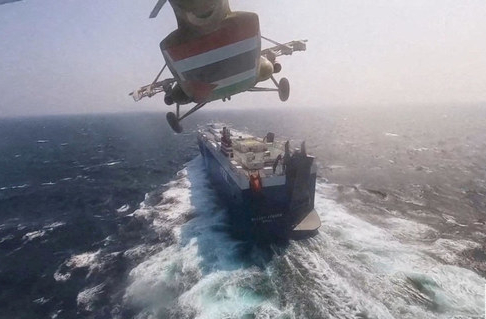
In recent months, the Middle East has witnessed a significant escalation in conflict, marked by a series of attacks, military operations, and diplomatic maneuvers. Central to these developments are the Israel-Hamas war, the Houthi rebels’ actions in Yemen, and the responses of the United States and its allies.
The Israel-Hamas conflict
The Israel-Hamas war, triggered by a deadly cross-border attack by Hamas on October 7, has become the deadliest in Israel’s history since the Holocaust, with about 1,200 civilians killed and 250 others taken hostage. Israel’s response, comprising intensive airstrikes followed by a ground offensive, aims to dismantle Hamas and secure the release of hostages. Despite these efforts, the conflict persists, with Hamas still holding many hostages. This war has deeply traumatized Israeli society, leading to a crisis of confidence in its leadership and a profound sense of national trauma.
In Gaza, the impact of Israeli bombings is catastrophic. With a death toll exceeding 23,000 and 80% of the population displaced, the region faces a humanitarian disaster. Half of Gaza’s buildings are estimated to be damaged or destroyed, and the healthcare system is on the brink of collapse. The United Nations reports that approximately one-quarter of Gaza’s population is starving, highlighting the dire need for international humanitarian aid.
Houthi Rebels’ aggression and the US response
Adding to the tension, the Houthis struck a US-owned container ship with a missile in the Gulf of Aden. Fortunately, there were no injuries or significant damage, and the ship continued its journey. These attacks are part of the Houthis’ broader strategy to target American and British vessels in retaliation for their involvement in the region and as a means to pressure Israel regarding its conflict with Hamas.
The United States has responded with a dual approach of diplomatic efforts and military action. The U.S., alongside the UK and other allies, conducted joint strikes on Houthi targets in Yemen to degrade their capabilities. This military response, while decisive, reflects a careful balance aimed at averting a broader regional conflict.
Current status and prospects for peace
As of now, the situation remains volatile, with no clear end in sight. Diplomatic efforts continue, but the challenges are immense. The United States and other global powers are working towards finding a resolution that can bring peace to the region while addressing the humanitarian crises in Gaza and Yemen. However, the complexity of the issues involved and the deep-seated animosities make this an uphill task.
The Israel-Hamas conflict, with its deep humanitarian implications, calls for an urgent and sustained international response. The ongoing strife in Gaza has led to widespread destruction and loss of life, necessitating immediate humanitarian assistance and a long-term strategy for rebuilding and reconciliation.
Meanwhile, the Houthi rebels’ continued aggression in the Red Sea highlights the need for a robust and strategic approach to ensure maritime security and address the root causes of the conflict in Yemen. The United States, while committed to defending its interests and ensuring regional stability, faces the challenge of navigating these complex dynamics without exacerbating the situation.
The escalating conflicts in the Middle East represent a critical juncture for the international community. The need for a coordinated, multi-faceted response that addresses both the immediate security concerns and the underlying political and humanitarian issues has never been more pressing. As the world watches, the actions taken in the coming weeks and months will be crucial in shaping the future of this tumultuous region.
